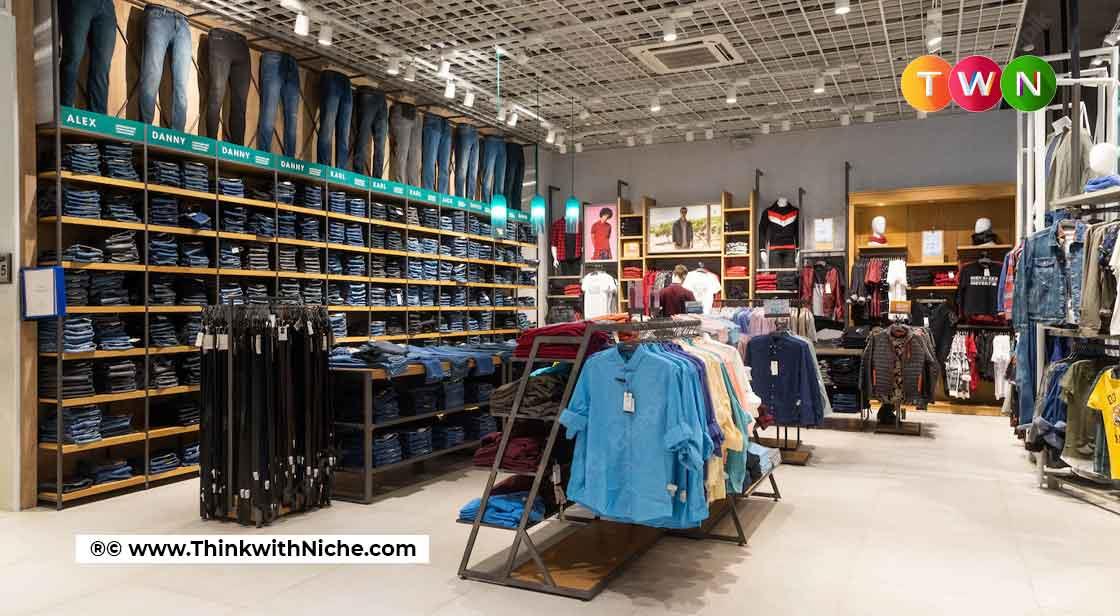Scope And Importance Of Retail Industry In India

Blog Post
The countries with strong retail sectors have seen the greatest economic and social improvement. Why has retailing grown to be such a common method of conducting business? The benefits of a thriving retail industry—easy access to a wide range of products, freedom of choice, and excellent levels of customer service—are the key to the solution. Retailing includes selling through every channel that could be used to approach the consumer, including the mail, the Internet, and door-to-door sales. Manufacturers like Dell Computers become retailers when they sell directly to customers.
Planning to enter into the retail business with no understanding? This blog will guide you with a full understanding of the importance and scope of the retail industry its significance and why to start your retail business. We know retailing in India is an intricate topic and we have tried to simplify it for you.
Consumers benefit from retailing because merchants engage in marketing activities that allow them to explore a diverse selection of products and services. Retailing also plays a role in the formation of a sense of place, time, and ownership. The service given by a merchant also helps to improve the image of a product. Retailing has a large economic impact. It necessitates a large annual revenue and personnel. Hence. retail business in India holds profound importance.
Retailing's Definition And Meaning
Retailing is a group of activities completed when selling products and services to customers directly. The products and services offered to customers are only to be used by them personally, not for resale or other commercial purposes. The final step in the process of product distribution is retailing.
In principle, retailing is a business activity that entails selling goods and services to a large customer base dispersed across a large area. Retailing takes many distinct shapes. Numerous forms continue to be developed in response to consumer and retailer convenience.
The retailing network can be divided into two major groups to better understand the different types of retailers and their functions: (a) store retailing and (b) non-store retailing. The retailing activity goes through four stages, including embryonic, growth, maturity, and decline, just like the growth cycle of business firms.
A retail establishment experiences an extended period of rapid expansion, matures, and then starts to decline. In terms of sales volume, consumer coverage, and chain store expansion, it has been observed that traditional retail stores needed more than 50 years to achieve a mature state.
Scope of Retailing in India
Retailing has a very wide scope. It is one of the fastest growing industries in India and is providing employment opportunities to many people. With the increase in the purchasing power of the people and the rural reach of the retailers, the scope of retailing has increased manifold.
The world of retail is highly diverse. It is one of India's sectors that is expanding the fastest and offers many people employment opportunities. Retailing offers jobs in two different ways. First of all, it gives people the chance to start their own entrepreneurs, and secondly, it gives so many people who are unable to own retail establishments employment.
The scope of retailing has greatly expanded as a result of increasing consumer spending power and retailers' expansion into rural areas. Both perspectives allow you a sense of the scale of retailing. One is from the perspective of the retailer, or the business owner, and the other is from the perspective of the employee.
Retailer classification:
The retail industry can be broadly divided into:
1. Unorganized
2. Organized retailing
1. Unorganized Retail:
Indian mom-and-pop shops and small family-run kirana stores have historically dominated the country's retail sector. These stores are characterised by their small size, limited selection and variety stacked in a small space, ineffective upstream procedures, little funding, outdated infrastructure, and lack of qualified workers. Unorganized retailing is the name given to this traditional processes of selling.
Unorganized retailing in India refers to businesses whose activities are not authorized by a legislation or other legal provision and/or do not maintain regular financial records. As a result, this industry is characterised by small, scattered businesses that operate from either a fixed or mobile location to provide goods or services.
2. Organized Retail:
Those that have a trading licence and are registered to pay taxes to the government are considered organized retailers. Simply put, organised retail is a store where every item is sorted and categorised by its purpose, form, and nature before being presented under one roof. They are placed in different departments and shown quite systematically with their price points.
Retail that is organized deals in a variety of formats, usually through a multi-owner chain of stores or distribution hubs that are overseen by management. The experience of organised retailing today is one that emphasises comfort, service assistance, convenience, style, and speed. It is something that provides a customer with a more enjoyable shopping experience, brand affiliation, diversity and choice for selection, rewards for loyalty, entertainment, and so on.
Importance Of Retailing In India
Let’s jump into the article and see how the retail industry has marked its importance in this world full of advanced technologies. Here's the importance of retailing in India:
Customer Convenience
The retail sector plays maybe an essential role in delivering ready-to-consume products to the consumer's doorstep. Retailing benefits buyers because merchants execute marketing activities that allow users to browse a wide range of items and services. Retailing also contributes to the creation of a sense of place, time, and ownership.
Supply Chain Management
Retailers are part of the supply chain, which is an interconnected system. A retailer buys vast amounts of commodities from makers or wholesalers and then resells smaller amounts to customers. Retailers contribute to the sorting by gathering a diverse range of products and services from various manufacturers and making them available for purchase.
Size Comfort
Retailers cut down raw materials and serve customers in the amounts and sizes they want. Shampoo, for instance, comes in little sachets. The retailer assists customers by offering the goods, services, and guidance they require in the packaging and amounts they want.
Research
Throughout the supply chain, the retailer delivers essential information. They educate and inform customers about the features and benefits of the products. Customers are informed by advertising, displays, signage, and sales personnel. Other outlets and members receive marketing research assistance. In some ways, retailing is the last step in the consumer product marketing process. They also give producers and distributors input on customer demands, which assists them in scheduling demand and distribution.
Mobilizing Finance
Financial assets and investments are mobilized in the retail sector since a small shop may be set up with little money. They store inventory, price it, put it on the sales floor, and manage it in various ways; they frequently pay suppliers for goods before delivering them to end buyers.
Social Responsibility
Consumers want to see increases in total consumption and community stability over time, and retail businesses understand this. Retailers must increase their community's perception of their value by serving as a central focus and implementing excellent public relations and promotional initiatives, involving endorsements. This motivates corporations to engage in social responsibility by allocating a portion of their goods purchase prices to general welfare programs.
Also Read: Textile Industry: A Craze For Fabrics
Conclusion
Retailers today are more than just middlemen who purchase from vendors and sell to customers. They now function as habitats for retail and their business associates to create, distribute, and capture value.
You May Like
EDITOR’S CHOICE












